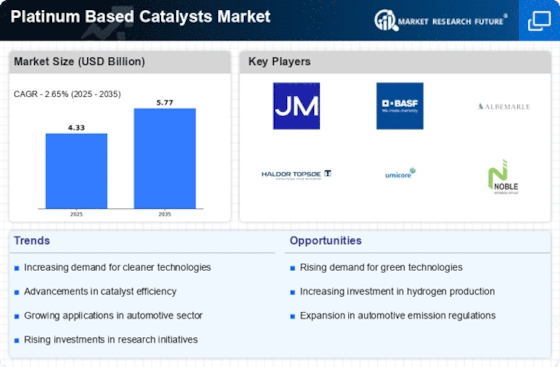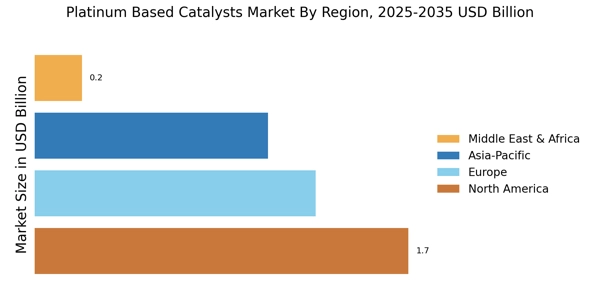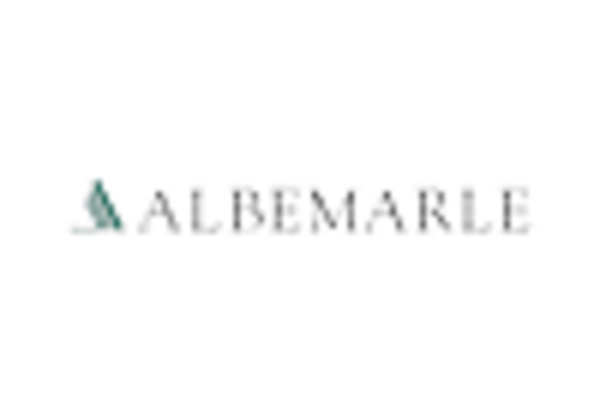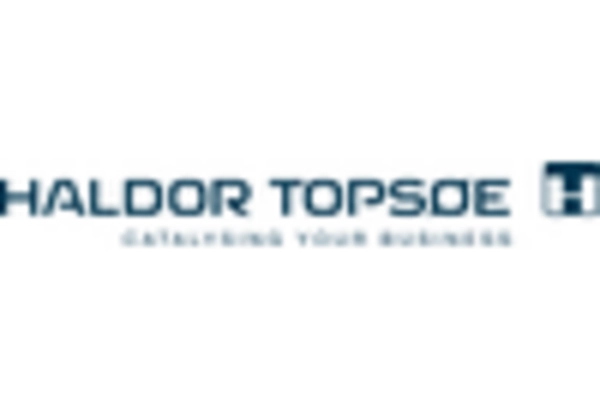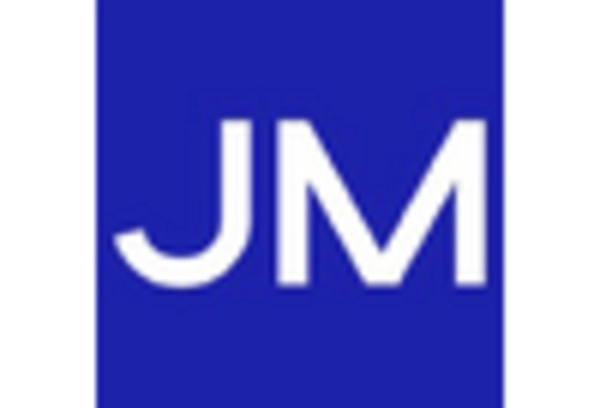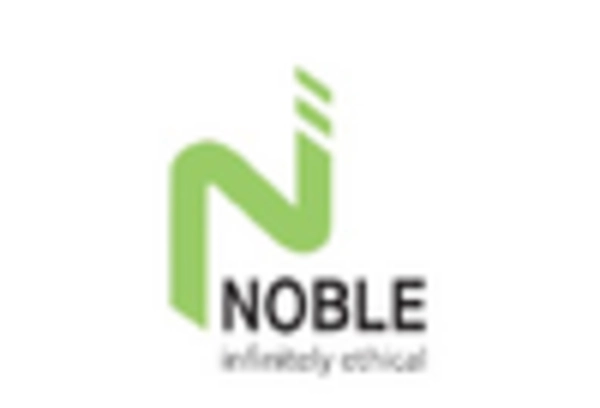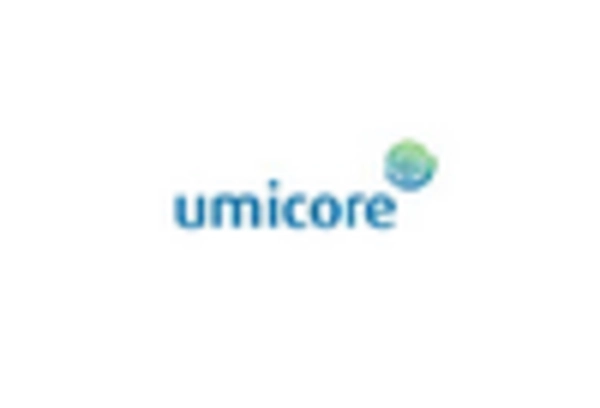Growth in Chemical Processing
The chemical processing industry is witnessing a robust expansion, which is contributing to the growth of the platinum based catalysts market. Platinum based catalysts are essential in various chemical reactions, including hydrogenation and oxidation processes, which are critical in the production of fine chemicals and pharmaceuticals. As the demand for specialty chemicals continues to rise, the need for efficient and effective catalytic solutions becomes paramount. In 2025, the chemical processing sector is anticipated to represent a substantial portion of the platinum based catalysts market, driven by advancements in production technologies and an increasing focus on process optimization. This trend suggests that the platinum based catalysts market will benefit from the ongoing evolution of chemical manufacturing processes.
Rising Demand in Automotive Sector
The automotive sector is experiencing a notable increase in demand for platinum based catalysts, primarily due to the stringent emission regulations imposed by various governments. These regulations necessitate the use of advanced catalytic converters that utilize platinum based catalysts to reduce harmful emissions from vehicles. In 2025, the automotive industry is projected to account for a significant share of the platinum based catalysts market, driven by the growing adoption of electric vehicles and hybrid technologies. As manufacturers strive to meet environmental standards, the reliance on platinum based catalysts is likely to intensify, thereby propelling market growth. Furthermore, the shift towards cleaner technologies in transportation is expected to create new opportunities for innovation within the platinum based catalysts market.
Technological Innovations in Catalysis
Technological innovations are playing a crucial role in shaping the platinum based catalysts market. Recent advancements in catalyst design and synthesis techniques have led to the development of more efficient and durable platinum based catalysts. These innovations not only enhance catalytic performance but also reduce the amount of platinum required in various applications, thereby lowering costs. In 2025, the market is expected to benefit from ongoing research and development efforts aimed at improving catalyst efficiency and sustainability. The integration of nanotechnology and advanced materials into catalyst formulations is likely to further propel the platinum based catalysts market, as these technologies offer enhanced performance characteristics and broader application potential.
Emerging Applications in Renewable Energy
The transition towards renewable energy sources is creating new avenues for the platinum based catalysts market. Platinum based catalysts are increasingly being utilized in fuel cells, which are pivotal for energy conversion in hydrogen production and storage. As nations invest in sustainable energy solutions, the demand for fuel cell technology is expected to surge, thereby enhancing the market for platinum based catalysts. In 2025, the renewable energy sector is likely to emerge as a key driver for the platinum based catalysts market, as innovations in fuel cell efficiency and durability continue to evolve. This shift towards cleaner energy alternatives indicates a promising future for platinum based catalysts in various energy applications.
Increasing Investment in Research and Development
Investment in research and development is a significant driver for the platinum based catalysts market. As industries seek to enhance the performance and sustainability of catalytic processes, funding for R&D initiatives is on the rise. This investment is crucial for developing next-generation platinum based catalysts that can meet the evolving demands of various sectors, including automotive, chemical processing, and renewable energy. In 2025, the emphasis on innovation and technological advancement is expected to lead to breakthroughs in catalyst formulations and applications, thereby expanding the market. The commitment to R&D within the platinum based catalysts market suggests a proactive approach to addressing future challenges and opportunities.


